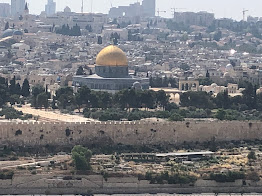The Office of a High Priest in the Old Testament (Hebrews 5:1-4):
A high priest is chosen among men and appointed before God to represent the people. He must be qualified to serve in God's ministry and understand how to approach God on behalf of humankind. His ordination by God means he is called to serve the people of God in matters related to the Almighty. The primary role of the high priest is to present sacrifices and gifts for the sins of people leading them to offer their lives and possessions to God.
"Every high priest is selected from among men and is appointed to represent them in matters related to God, to offer gifts and sacrifices for sins. He is able to deal gently with those who are ignorant and going astray since he himself is subject to weakness. This is why he has to offer sacrifices for his own sins as well as for the sins of the people."
In the Old Testament, the law required animal sacrifices for the sins of men. However, these sacrifices were performed yearly and seemed to have no lasting effect on the forgiveness of sins. They were incomplete because they could not fully accomplish the work of salvation. Instead, they served as reminders of humanity's sins without truly erasing them. It is in this context that Jesus' superiority in the Old Testament is emphasized, as He becomes the perfect sacrifice, greater than the prophets, angels, Aaron, Joshua, and Moses. Jesus is the Lamb of God, the ultimate sacrifice for our sins.
The role of a high priest demands boldness, love, and compassion towards humanity. High priests must treat people with compassion because they, too, are sinners, having their own iniquities, flaws, and failures. Thus, before presenting sacrifices and offerings for the people's sins, the high priest must first offer sacrifices for his own sins.
The high priest acts as a bridge between the people and God. On one hand, he performs liturgical and ceremonial roles, offering gifts and sacrifices not to manipulate God but to express gratitude for creation and covenant, and to embody God's atonement for their sins. On the other hand, the high priest also plays a pastoral role, sympathizing with and supporting the people, making the idea of the 'bridge' a reality in their lives. Like ordinary priests, high priests are themselves sinners and must offer sacrifices for their own sins as well as those of the people.
In the appointment of a high priest, God's divine calling is crucial. No one should take on the honor of being a priest themselves; they can only serve as priests if God has called and appointed them. The true functions of the priesthood can only be fulfilled by those chosen and ordained by God.
Overall, the text reflects on the significance of the High Priest's role as a mediator between God and humanity, as well as the ultimate fulfillment of that role through Jesus Christ as the perfect High Priest and sacrifice.
In Christ,
Yovena Pierre-Louis, M.Div., M.Ed

Comments
Post a Comment